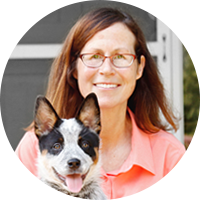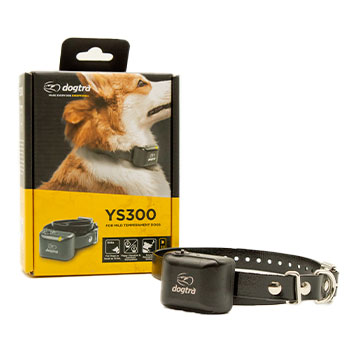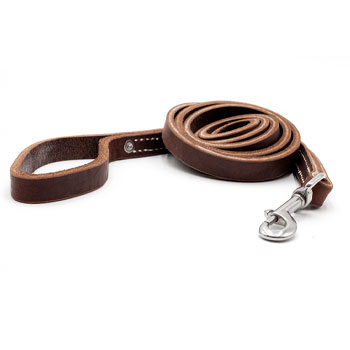October 21, 2023
Our German Shepherd pees when we correct him and chews up items even though he has toys. Please advise.
Full Question:
Cindy we got a German Shepherd puppy at the age of 4 weeks we were told he was 8 weeks old back in August of last year every time we correct the puppy he pees on the floor as well as now is chewing up items that does not pertain to his toys what could be the cause of this. I have a feeling it is separation anxiety. He only choose things that have our scent on it. He is now 11 months old will be a year next month on the 26th what can we do to prevent this from continuing any suggestions or ideas we don't want to continue kenneling him each time he is in the wrong. When he has done something wrong we can call his name and he immediately knows to kennel up. As well as pees on the floor. Is this something that we should change or what should we do differently. Please advise thank you
 Cindy's Answer:
Cindy's Answer:
The urinating when you correct him is called submissive urination and the more you correct him the more this problem will persist. It's an appeasement behavior dogs do with each other to show their submission. They can't control this.
If he's chewing things then this is a human mistake by letting him have the freedom to continue making the wrong choices. Last September I had suggested a couple of our puppy videos, these outline how we live with and manage puppies so they can't make mistakes during their formative months.Did you ever have an opportunity to view those ?
The more you allow him the freedom to continue doing the wrong thing, the more it reinforces this behavior. It's not really fair to correct him for this if you haven't taught him what you expect.
If you do a search on submissive urination you'll find this isn't the same as regular peeing on the floor. It's something the dog truly can't control and how you react will affect whether or not you'll be able to help him get past this. Some dogs never do.
Here is some info I found from some internet searching:
Submissive and/or excited urination is an involuntary behavior. Your dog isn’t making a conscious decision to pee; he may not even know that he is peeing, which is why most owners’ efforts to correct the problem fail. When he wets in response to interaction with a person, it’s his way of showing submission and telling the person “I know you’re the boss.” Not exactly the way we’d like him to get his message across, but his instincts tell him that this submissive routine is very flattering to others, so he uses it during exciting or intimidating interactions.
Submissive and excited peeing is common in young puppies and in shy, sensitive, insecure dogs. Some breeds – including Cocker Spaniels, Golden Retrievers and Dachshunds – are especially prone to this behavior, but it can occur with dogs of any breed. Many puppies grow out of submissive urination as they get older and develop better bladder control, but for some dogs, the problem continues into adulthood or even develops at a later age.
This behavior can be one of the more frustrating problems to fix, since corrections will intimidate the dog, making him feel even more submissive. Soothing your dog to make him feel better generally doesn’t help, either, because your dog will tend to interpret sweet talk and petting as praise. This only serves to reinforce his overly excited state of mind and makes greetings and other interactions even more emotionally overwhelming for him.
Most submissive urinators are especially sensitive to people’s body language and vocal tones. Loud, angry voices and happy, squeaky voices both act as triggers. Likewise, imposing body movements and exciting movements can create bladder control problems.
The chewing of items is much easier, it's all about managing him when you aren't able to watch him. Use your crate or kennel. Don't wait until he makes a mistake to put him in the kennel, use your kennel as a place for him to be when you can't supervise him. It's a tool to keep him and the things you have safe, not a place for punishment.
If he's chewing things then this is a human mistake by letting him have the freedom to continue making the wrong choices. Last September I had suggested a couple of our puppy videos, these outline how we live with and manage puppies so they can't make mistakes during their formative months.Did you ever have an opportunity to view those ?
The more you allow him the freedom to continue doing the wrong thing, the more it reinforces this behavior. It's not really fair to correct him for this if you haven't taught him what you expect.
If you do a search on submissive urination you'll find this isn't the same as regular peeing on the floor. It's something the dog truly can't control and how you react will affect whether or not you'll be able to help him get past this. Some dogs never do.
Here is some info I found from some internet searching:
Submissive and/or excited urination is an involuntary behavior. Your dog isn’t making a conscious decision to pee; he may not even know that he is peeing, which is why most owners’ efforts to correct the problem fail. When he wets in response to interaction with a person, it’s his way of showing submission and telling the person “I know you’re the boss.” Not exactly the way we’d like him to get his message across, but his instincts tell him that this submissive routine is very flattering to others, so he uses it during exciting or intimidating interactions.
Submissive and excited peeing is common in young puppies and in shy, sensitive, insecure dogs. Some breeds – including Cocker Spaniels, Golden Retrievers and Dachshunds – are especially prone to this behavior, but it can occur with dogs of any breed. Many puppies grow out of submissive urination as they get older and develop better bladder control, but for some dogs, the problem continues into adulthood or even develops at a later age.
This behavior can be one of the more frustrating problems to fix, since corrections will intimidate the dog, making him feel even more submissive. Soothing your dog to make him feel better generally doesn’t help, either, because your dog will tend to interpret sweet talk and petting as praise. This only serves to reinforce his overly excited state of mind and makes greetings and other interactions even more emotionally overwhelming for him.
Most submissive urinators are especially sensitive to people’s body language and vocal tones. Loud, angry voices and happy, squeaky voices both act as triggers. Likewise, imposing body movements and exciting movements can create bladder control problems.
The chewing of items is much easier, it's all about managing him when you aren't able to watch him. Use your crate or kennel. Don't wait until he makes a mistake to put him in the kennel, use your kennel as a place for him to be when you can't supervise him. It's a tool to keep him and the things you have safe, not a place for punishment.
User Response:
Thank you for all the information. This now makes sense of the peeing. He does do all the above. We thought more of it being a scared peeing but never thought of it as a submissive peeing. And as for his chewing and the kennel we do put him in the kennel when we go places now all bc we can't trust him yet to not chew things up. He will be a year old next month and is the sweetest and most protective GSD. I've even noticed when my husband leaves at night for work he will go and check all the doors to make sure they are locked. Again thank you for your advice.
100% (4 out of 4)
respondents found this answer helpful


Can't find what you're looking for?








